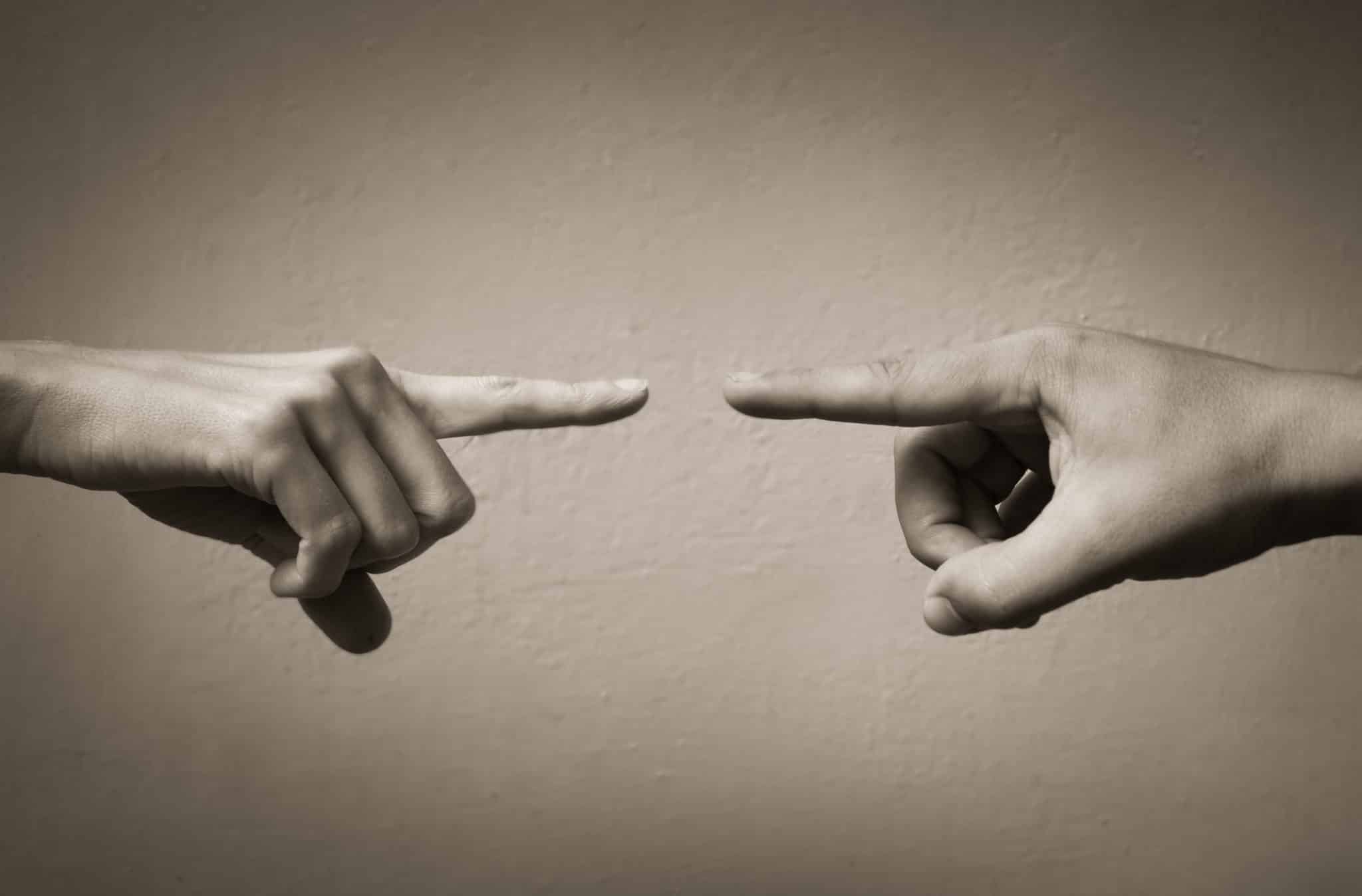 kieferpix/Getty Images
kieferpix/Getty Images I love to blame people. When something goes wrong, my first question is, “Who did it?” My family cringes when they hear it, but they already know the drill.
I remember a family trip to Lake Powell several years ago. We had gathered all our children from Israel, New York, and Los Angeles and caravanned to a stark yet gorgeous landscape in Utah. The weather was hot. We all piled onto the houseboat, and I realized that the refrigerator had not been turned on, so there were no cold drinks. Immediately, my mind went to whose fault it was. Was it my son? My son-in-law? Maybe my husband? Someone had to be responsible! I snapped at my son, whom I see only once every few years, asking him why he had not plugged in the fridge. It turned out that it had been impossible to power up the fridge until that moment. And I had splatted blame all over our family gathering. I felt terrible, but the damage was done. After that, the energy was not the same.
Every Elul, I focus on one unfruitful trait. Throughout the month, I work on that middah, or character trait, and hopefully, make some progress toward reducing or eliminating it before I go before my Creator at Rosh Hashanah and plead for another year of life. This year, I have chosen to work on my tendency to cast blame. My Torah Mates study partner, Rebbetzin Mattie Plotkin, reminded me that saying, “I will NOT” do something keeps that thing at the top of one’s mind. So I needed to say something other than “I will not blame.” What, I reflected, is the opposite of blame, the positive side of the coin? For me, the opposite of blame is acceptance.
At Lake Powell, what if I had simply accepted that the refrigerator was not on? For whatever reason, that was reality at that moment. Sometimes, things happen, and no one is to blame. The documents arrived late because the delivery van got held up in traffic. The electrical circuits got overloaded, so the air conditioning isn’t working. The refrigerator wasn’t connected, so it couldn’t be turned on. Of course, we could make up scenarios by which someone would be “responsible” for these mishaps, but what would be the point? The solution, I have come to believe, is to take life as it comes.
The core problem with blaming others is that it betrays a lack of faith in God. When we blame someone else, we say, “I know how things should be happening here. I know why this situation has arisen. And my way is undoubtedly right.” What chutzpah!
Since I began focusing more consistently on welling up with acceptance rather than raining down blame, I have changed. Day by day, as the urge to incriminate pops up, I am gradually supplanting it with a readiness to accept reality the way it is.
A passage in the “Big Book” of Alcoholics Anonymous summarizes the value of acceptance beautifully. Here’s how it goes:
“And acceptance is the answer to all my problems today … Nothing, absolutely nothing, happens in God’s world by mistake … Unless I accept life completely on life’s terms, I cannot be happy. I need to concentrate not so much on what needs to be changed in the world as on what needs to be changed in me and my attitudes.”
The fact is that the urge to blame has nothing to do with the other person. Instead, blame is about the blamer and their need for the world to run according to their specifications.
The fact is that the urge to blame has nothing to do with the other person. Instead, blame is about the blamer and their need for the world to run according to their specifications.
They say that God treats us the way that we treat other people. How do I want my Maker to look at me? With the narrow eye of blame or the expansive embrace of acceptance? As Elul races by, I pray to keep noticing sparks of censure and transforming them into buds of embrace.
Elizabeth Danziger is the author of four books, including Get to the Point, 2nd edition, which was originally published by Random House. She lives in Venice, California.





















 More news and opinions than at a Shabbat dinner, right in your inbox.
More news and opinions than at a Shabbat dinner, right in your inbox.